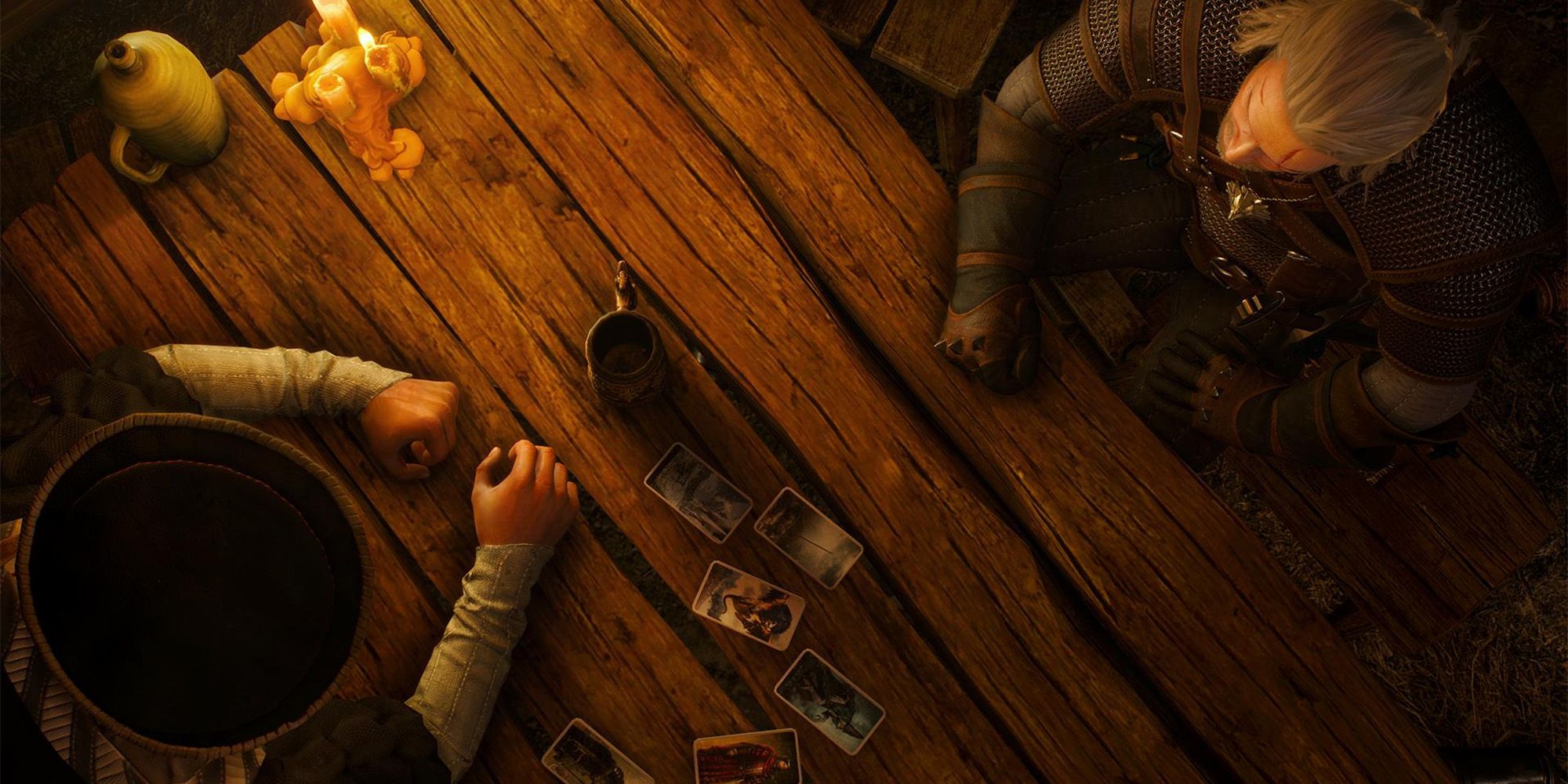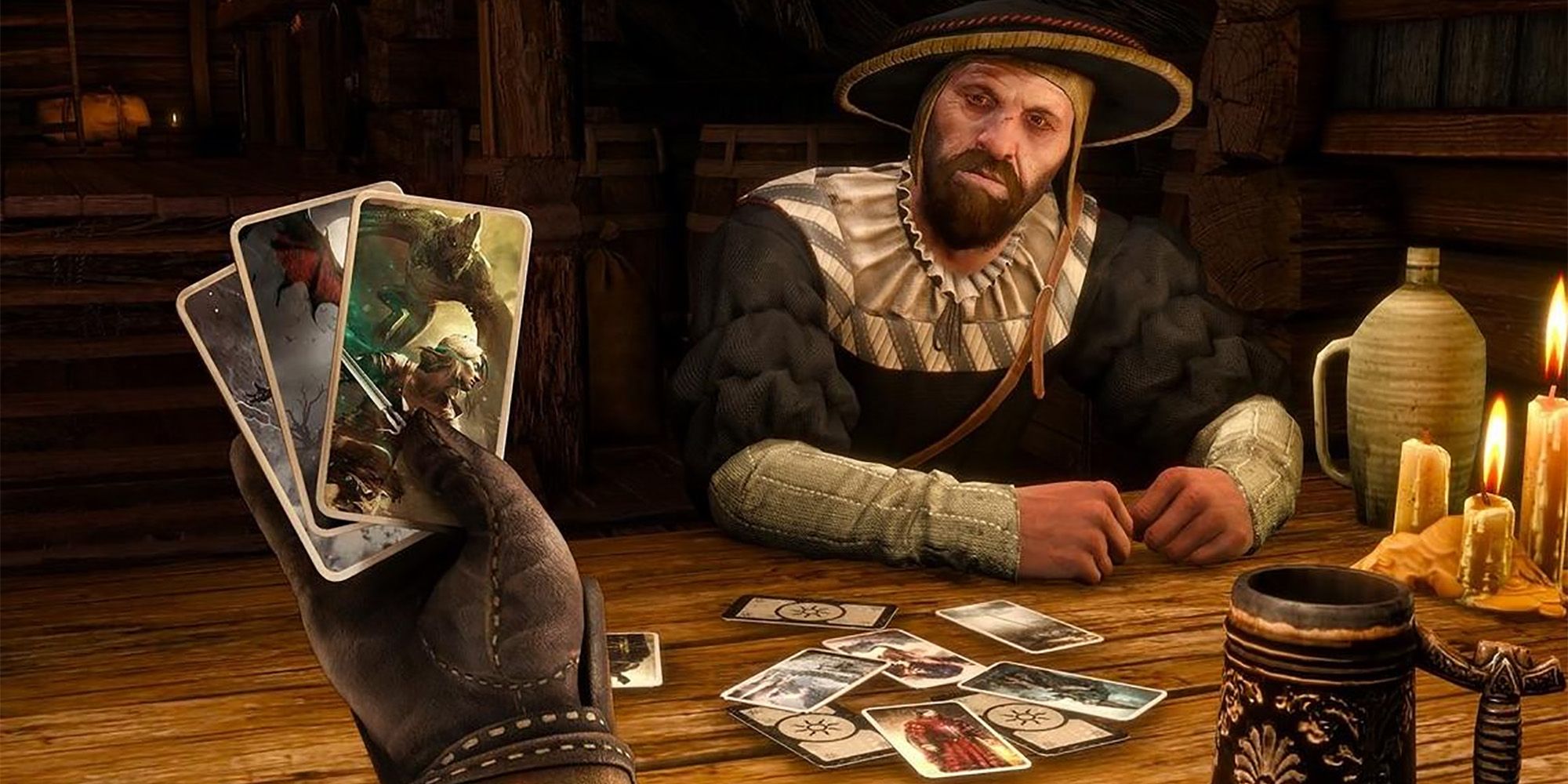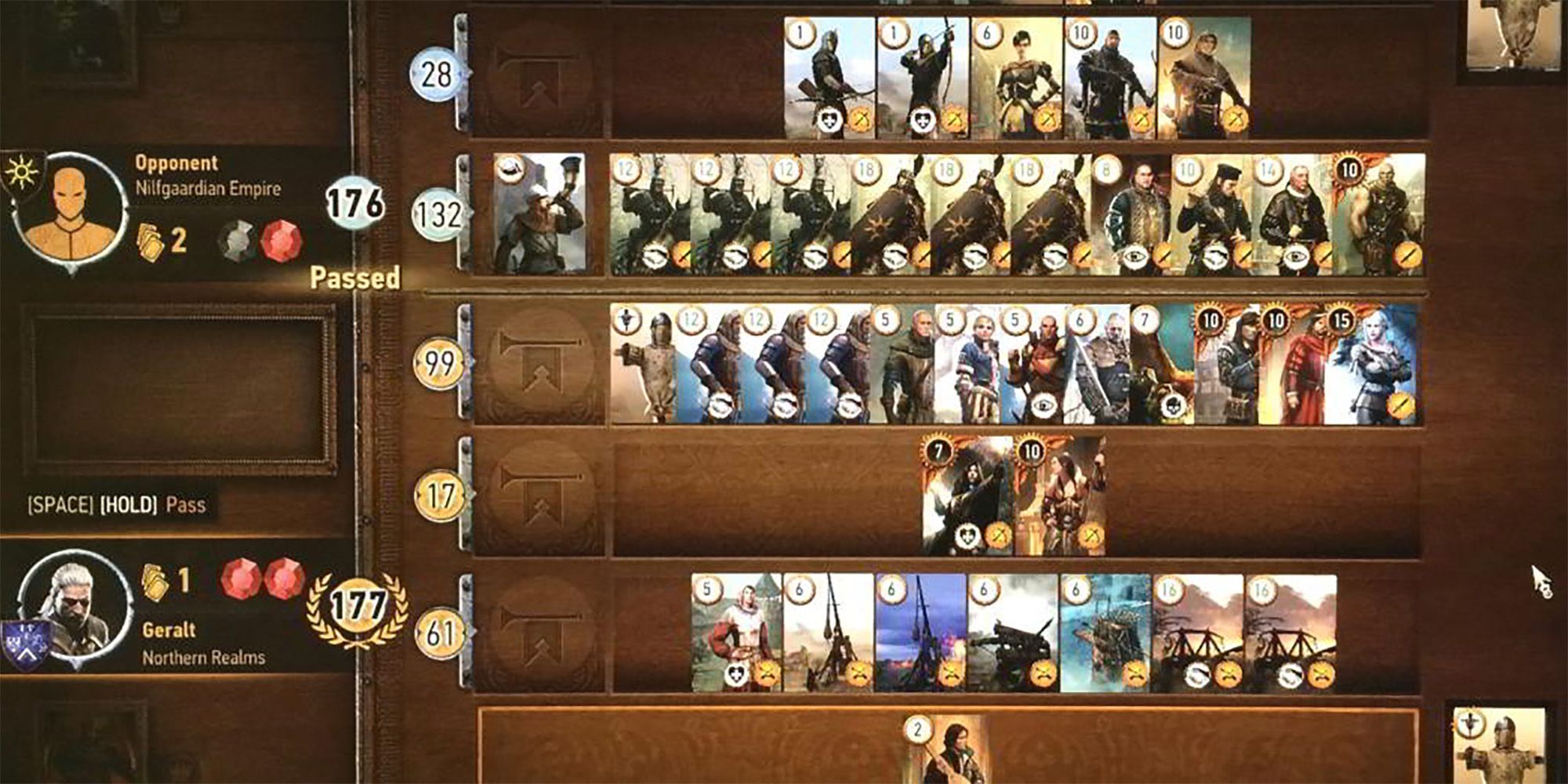As if Geralt of Rivia didn't already have enough to keep him busy, The Witcher 3: Wild Hunt tempted him away from all those important tasks with a strategic card game called Gwent. While minigames have always been a part of CD Projekt Red's Witcher universe, Gwent went a step beyond dice gambling and fighting for profit. The "Collect 'Em All" quest prompted players to travel all over The Continent playing against opponents and collecting intricate sets of cards to build powerful decks.
For the quest-driven player hungry to clear their queue and make sure all tasks are completed, knowing how to play Gwent is a must. Considering the warring nature of The Continent, it's a guarantee that one of the most time-consuming minigames introduced to the franchise would feature battle and strategies for war. Knowing how to win is even more important, as it means completing one of the lengthiest and most grueling tasks in Wild Hunt.
To launch the "Collect 'Em All" quest, the player needs to visit the scholar inside the tavern in White Orchard. This offers Geralt his first opportunity to play a match and prompt a multitude of Gwent-related quests that lead to other players, opportunities to win cards and Gwent tournaments. Prior to the Blood and Wine DLC, there were four collectible decks: Northern Realms, Nilfgaard, Scoia'tael and Monsters. The DLC introduced the Skellige faction, offering a brand new deck to expand Geralt's collection.
Deck-building is one of the most important strategies for Gwent, which means checking shops, merchants and taverns for any cards up for sale. Geralt can also win cards from the games he plays, and the more high-profile the opponent, the more rare and powerful the cards tend to be. A standard Gwent deck requires a minimum of 22 cards, hence the importance of finding and collecting as many cards as possible.
Every deck contains five types of cards. Leaders are the primary card type and offer a special power that can be used once per game. For example, the Scoia'tael deck leader, Francesca Findabair, allows the player to choose a "biting frost" card from their deck and play it instantly. As Geralt builds his deck over the course of the game, the leader card can be upgraded to offer different abilities.
Hero cards are the most powerful cards in the deck and can't be affected by the effects from Special cards. Unit cards are the soldiers and fall into three categories: close, ranged and siege combat. Special cards, like weather cards, have unique abilities that can damage opponent ranged abilities, close combat and siege weapon cards. Playing special cards can be a gamble, however, as they affect Geralt's lines as well as his opponent's.
There are also Neutral cards, which are similar in power to Hero cards, but feature heroes who tend to be neutral regardless of the faction of the deck. Geralt of Rivia, Yennefer of Vengerberg and Cirilla of Cintra are examples of neutral cards that can be played regardless of the deck's type.
Each game is designed to go three rounds, with the overall winner declared after winning two rounds. Players can forfeit at least one round, which can be a clever winning strategy if the opponent has already used their most powerful cards and winning the next round looks probable.
The Gwent board contains three tiers for both players that feature close, ranged and siege combat. Unit cards that fall under those distinctions can only be placed on the tier designed for their card. However there are some cards which may fall under more than one category and can be placed on either of the lines they are suitable for. Strategically, this could come in handy if a card can be placed on either the close or ranged line and the opponent has used a weather card to diminish points earned on one of those lines.
The overall strategy for Gwent is to earn as many points as possible while using the fewest cards. If the opponent is playing a lot of powerful cards in a round and there are still great cards in Geralt's hand, don't be afraid to forfeit a round if a win next round looks more likely. Wasting cards in an effort to win a battle that can't be won is a surefire way to lose the overall game.
While Gwent may seem like a game of chance, it's truly a game of strategy that requires careful study of the cards and their abilities before committing to their placement on the board. Fortunately, there are plenty of opportunities throughout the game that allow Geralt to play to his heart's content -- and when it comes to Gwent, practice makes perfect.



